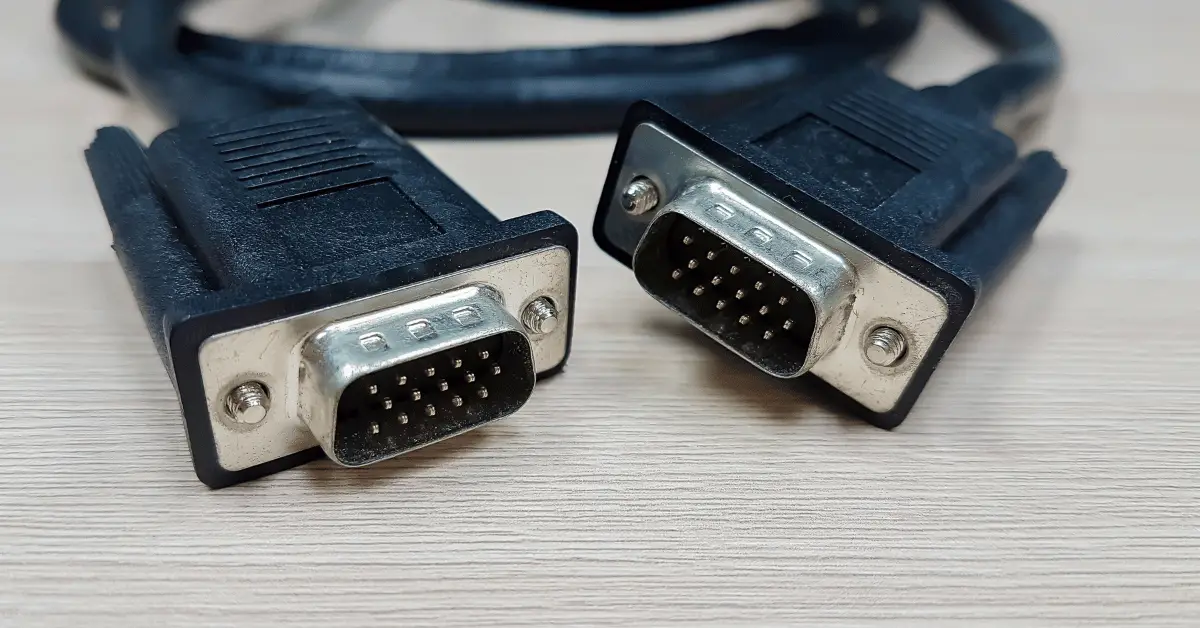Projectors are a popular technology used in a wide range of settings, from classrooms to home theaters. However, connecting your projector to your computer, laptop, or other device can sometimes be a challenge. Choosing the right projector cable and converter is crucial for getting the best image quality and connection for your projector. In this article, we will explore the different types of projector cables, including HDMI, VGA, and DisplayPort, and the projector converters to use for different connection needs. Whether you’re setting up a classroom presentation or a home theater, understanding these different types of cables and converters can help you get the most out of your projector.
Table of Contents
Types of Projector Cables
Projectors are an important tool for presenting information, displaying media, or playing games on a large screen. Connecting a projector to your computer or other device requires the right cables and converters to ensure a stable and high-quality connection. In this article, we will explore the different types of projector cables and converters available to help you choose the right ones for your needs.
HDMI Cables
HDMI cables are the most popular and versatile cable option for projectors. They can transmit both high-definition video and audio signals over a single cable, making them an ideal choice for home theater setups and professional presentations. HDMI cables are available in different versions, with the latest version supporting 4K resolution and high dynamic range (HDR) content.
VGA Cables
VGA cables are an older type of cable that are still widely used for connecting projectors to computers and laptops. VGA cables transmit analog video signals and are limited to resolutions of up to 1080p. While VGA cables are not as versatile as HDMI cables, they remain a popular option for many users due to their compatibility with older devices and their affordability.
DisplayPort Cables
DisplayPort cables are a newer cable option that can transmit high-resolution video and audio signals. They are similar to HDMI cables in terms of their capabilities but are typically used with computers and laptops rather than home theater setups. DisplayPort cables are available in different versions, with the latest version supporting 8K resolution and HDR content.
Projector Converters
HDMI to VGA Converters
HDMI to VGA converters are commonly used to connect newer devices with HDMI outputs to older projectors or monitors with VGA inputs. These converters are typically small and compact, making them easy to carry around for presentations.
VGA to HDMI Converters
VGA to HDMI converters are used to connect older devices with VGA outputs to newer projectors or monitors with HDMI inputs. These converters are also small and compact, making them easy to use for presentations or to connect older laptops to modern displays.
DisplayPort to HDMI Converters
DisplayPort to HDMI converters are used to connect devices with DisplayPort outputs to projectors or monitors with HDMI inputs. These converters are ideal for those who use newer computers or laptops that do not have HDMI outputs.
Conclusion
In conclusion, selecting the right projector cable and converter is essential for establishing a stable and high-quality connection between your projector and other devices. HDMI cables are the most versatile and popular option for transmitting high-quality video and audio signals, while VGA cables are still widely used due to their affordability and compatibility with older devices. DisplayPort cables are a newer option that offers high-resolution video and audio transmission capabilities, primarily used with newer computers and laptops.
HDMI to VGA, VGA to HDMI, and DisplayPort to HDMI converters are commonly used to connect various devices and projectors. These converters are lightweight and compact, making them ideal for presentations or connecting older laptops to modern displays. Ultimately, choosing the right cable and converter for your specific needs will ensure that you enjoy a high-quality viewing experience that meets your preferences and requirements.

